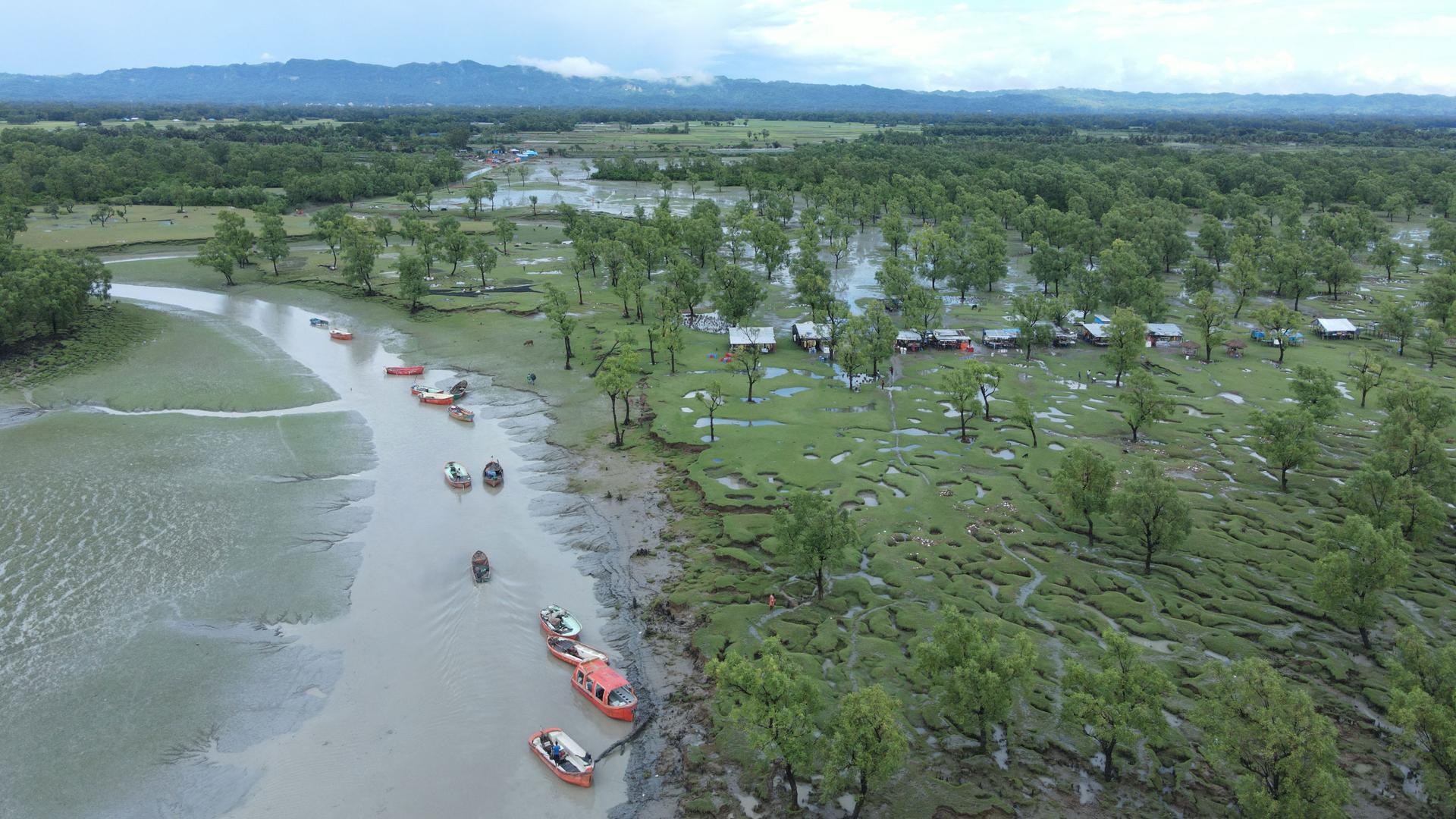‘They forgot about me’: People with disabilities in Bangladesh face increased risk during natural disasters
Sumi Jaladas crawled out from a doorway on her hands and knees and kneeled in the dirt in front of her corrugated steel home to watch her neighbors in the small village of Jela Para.
It had just stopped raining and many women and children were out playing and dancing along a muddy, brick walkway. Most of the men were away fishing in the nearby Bay of Bengal.
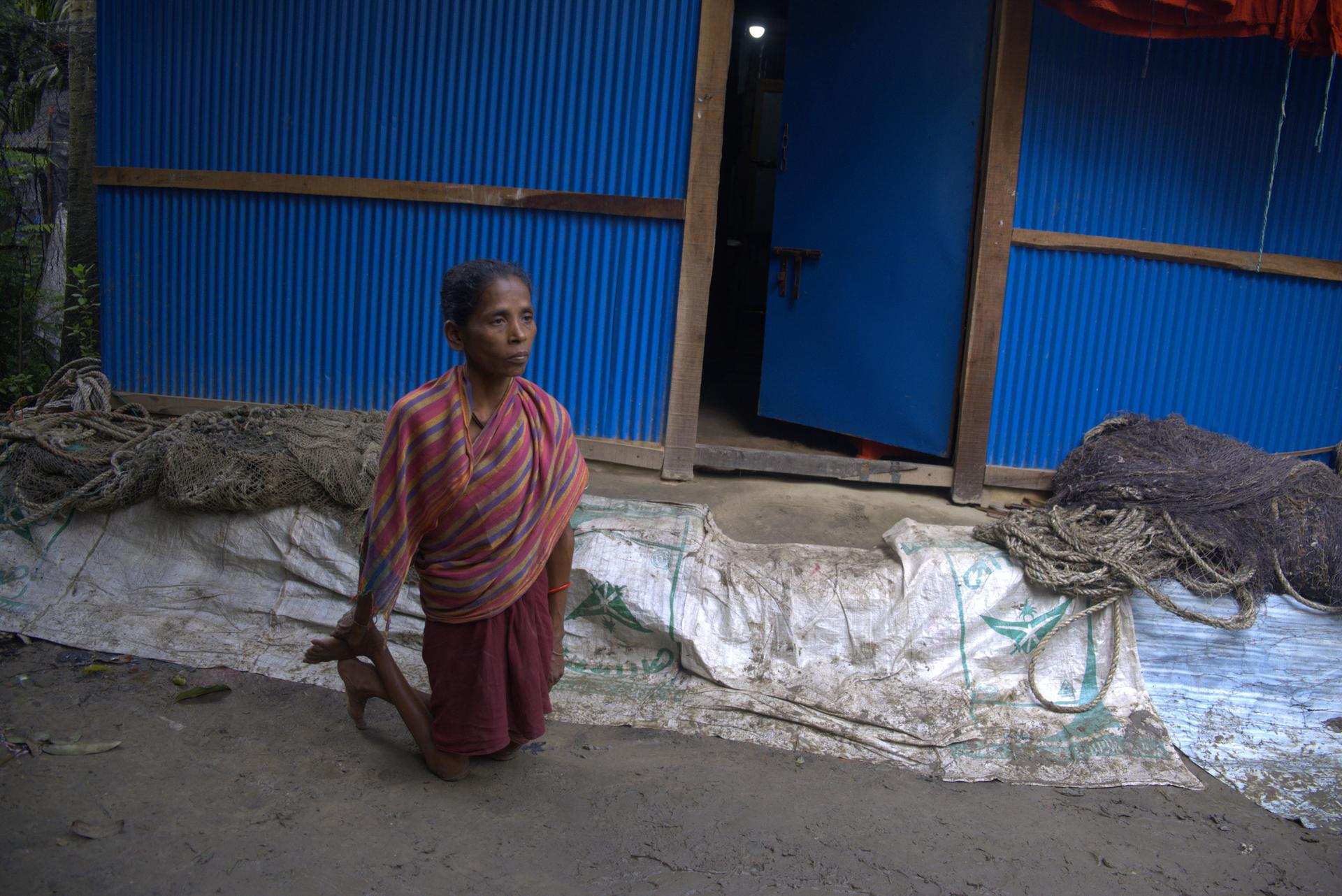
Jaladas, 40, said she’s never been able to walk. She uses a wheelchair but said she doesn’t have the upper-body strength to use it on her own. To travel outside the neighborhood, she relies on a sibling to push her.
Jela Para, part of the Sitakund municipality located in Bangladesh’s southeastern Chattogram District, is prone to tropical cyclones and floods. When disaster strikes, villagers may need to evacuate quickly to a storm shelter or higher ground.
For someone like Jaladas, the thought of having to suddenly flee to escape rising water can be horrifying.
Jaladas, who is unmarried, lives with one of her brothers and his family, and helps out with cooking. She said this is not an ideal situation, but feels that due to her disabilities, she would not be able to survive anywhere else.
“I’d like to live in a better place and have my own home,” she said. “But, I also can’t see well, so I can’t make handicrafts or sew.” She said her brother is responsible for saving her life in an emergency situation.
“It scares me. If my brother evacuates me, then I can evacuate, otherwise I just have to stay inside my house.”
“It scares me,” she said. “If my brother evacuates me, then I can evacuate, otherwise I just have to stay inside my house.” Jaladas said she has no choice but to follow her brother’s decisions.
Sea-level rise and strong storms threaten communities across Bangladesh with extreme flooding. Global warming has exacerbated the threat, ruining farmland in coastal regions and compelling many to seek work and safety in other parts of the country.
Over 13 million Bangladeshis could be displaced by climate change by 2050, according to a United Nations report.
Mohammad al-Amin, an environmental scientist at the University of Chittagong, said he has seen cyclones and tidal surges “totally wipe out” villages.
An inlet in the Bay of Bengal in the Chattogram District causes a funneling effect, he explained, intensifying storms that have already gained strength due to warming ocean temperatures.
While these disasters endanger everyone, Amin said senior citizens and people with a disability are more likely to die.
“They are the most vulnerable,” he said.
Just over a billion people worldwide — 1 in 5 people — have some kind of physical, sensory or developmental disability. In many countries, including Bangladesh, numerous educational, economic and social barriers limit or prevent inclusion, which often extends into disaster management and recovery.
Amin says that during climate-related emergencies, many people become concerned with saving themselves.
“They [people with disabilities] might be forgotten, it might not be possible to carry them to a cyclone shelter, which could be 3 to 5 kilometers [2 to 3 miles] away from their homes.”
Nur Nobi, who is blind, always assumed his family would guide him to safety during such an emergency. But during a cyclone evacuation several years ago, he suddenly found himself alone.
“They left through the back door and forgot about me.”
“I was in the front room of my house while my wife and children were preparing to evacuate to a cyclone shelter,” the 51-year-old said. “But, they left through the back door and forgot about me.”
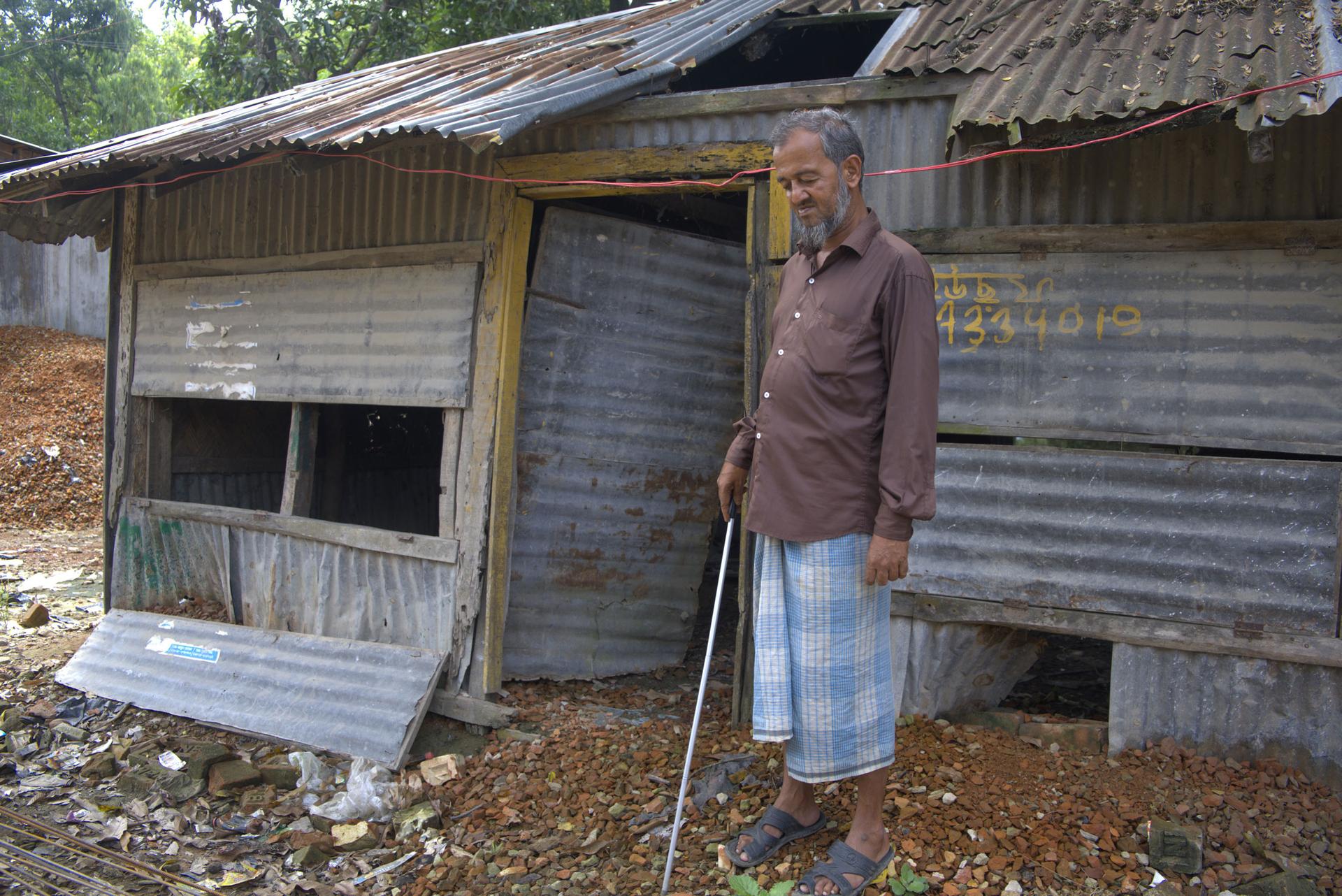
He said it was too dangerous for him to evacuate to a cyclone shelter on his own due to the high winds blowing around debris and powerlines.
Nobi asked a neighbor to help locate his family. Later, one of his daughters returned home and brought him to the shelter.
Nobi, who heads a disability advocacy group in the rural Sitakund district, said that despite the risks, relocation to a city is not possible for many people with disabilities. There aren’t many job opportunities and physically getting around a small town can be easier, he said.
Nobi said there are measures the government could take that would make it safer for people with disabilities during a climate-related disaster.
“There should be sign language interpreters to assist deaf people during evacuations,” Nobi said. “And people with a disability should be prioritized for evacuations ahead of a cyclone, and officials should take them to a shelter.”
Selina Akter, the mother of two severely disabled children in the village of Mirsharai, said that emergency transportation could alleviate the burden of having to make a difficult decision should they need to evacuate.
“Which child should I carry, this one or that one?”
“What else can I do, can I evacuate both of my children together by myself?” Akter said. “Which child should I carry, this one or that one?”
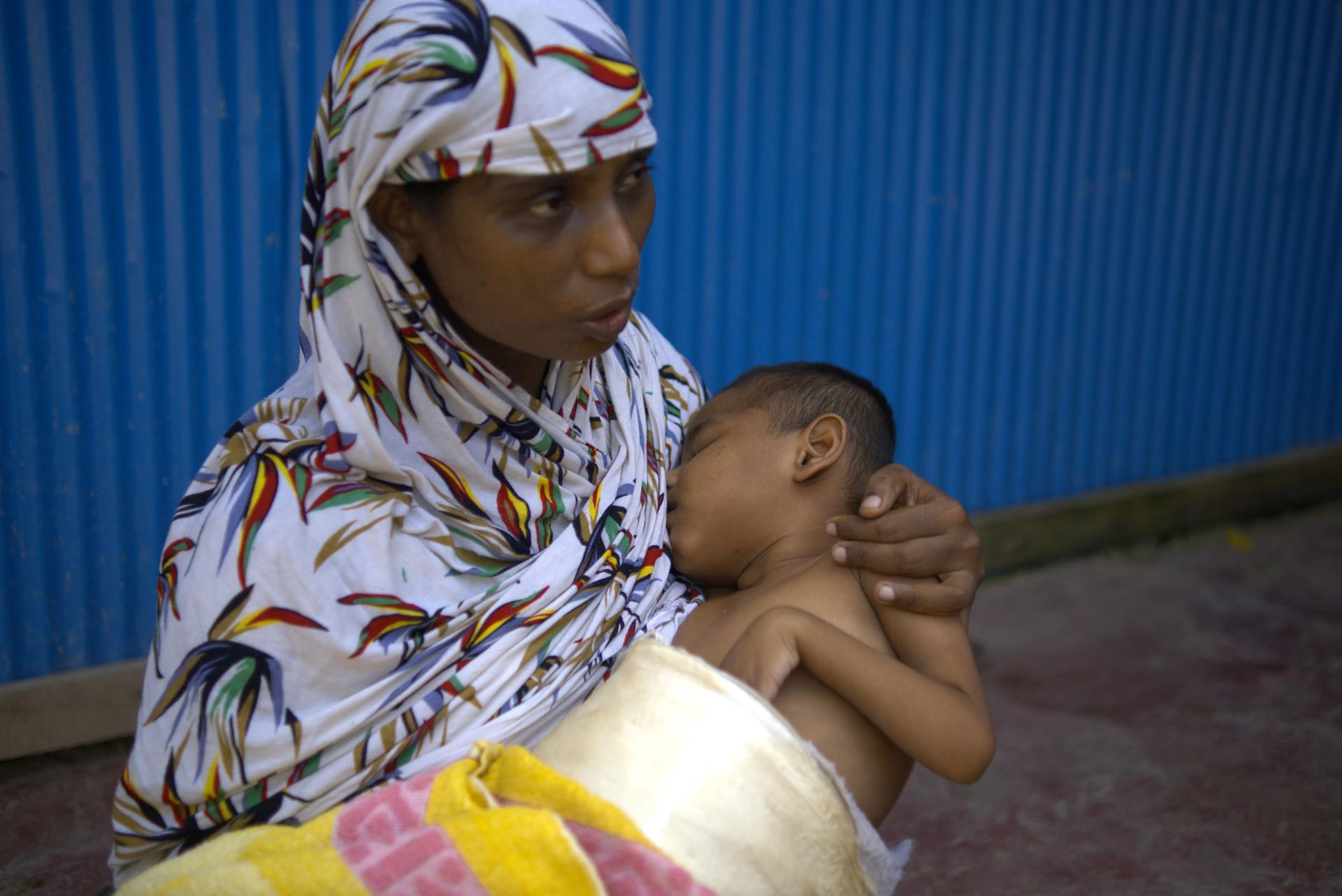
She said that if they had to evacuate the village while her husband was away, she doesn’t know how they would survive.
“If Allah [God] allows, I’ll be able to evacuate my two children, otherwise I’ll die here,” she said.
Akter said she is unaware of any assistance for people with disabilities during emergencies.
Bangladesh’s national disaster management protocol and other laws are, in fact, “highly disability inclusive,” said Vashkar Bhattacharjee, a Chattogram-based disability rights advocate.
The problem, he said, is at the “implementation level.”
Disability inclusion is “on the agenda of the Bangladesh government,” he said, but added that these provisions are mainly just “on paper.”
Bhattacharjee, who is blind and advises the government on accessibility, said the effects of climate change on people with disabilities is still largely misunderstood by policymakers in Bangladesh.
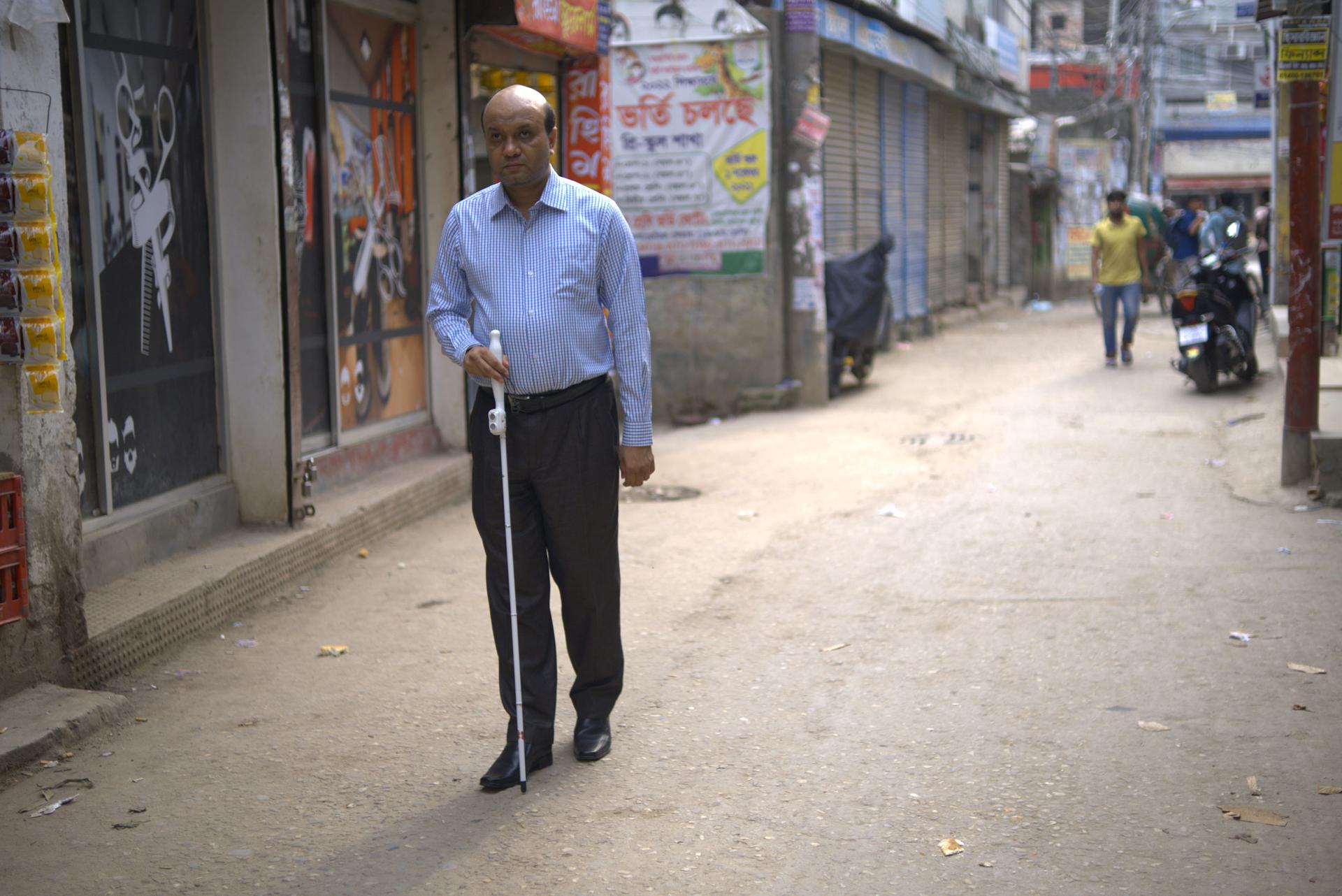
But he cannot completely fault authorities, he said. Disability advocates and analysts also need to raise more awareness about this issue.
He suggests more research and studies in this area, especially looking at how global warming affects women and Indigenous people with disabilities.
Bhattacharjee, who participated in the COP21 climate conference in Paris, said that the organizations involved often exclude people who live in areas where severe weather poses the greatest threats.
“People with disabilities who are directly impacted by climate change, their voices are not going in.”
“People with disabilities who are directly impacted by climate change, their voices are not going in,” he said. “We need to connect these rural people into the national and international discussions.”
Jahedul Islam, a 22-year-old university student, is working to ensure that no one with disabilities gets left behind in a climate emergency.
Islam lives on the island of Sandwip, in the Bay of Bengal, where coastal erosion has displaced families for decades. Now, observers say stronger storms, floods and sea-level rise are worsening these risks.
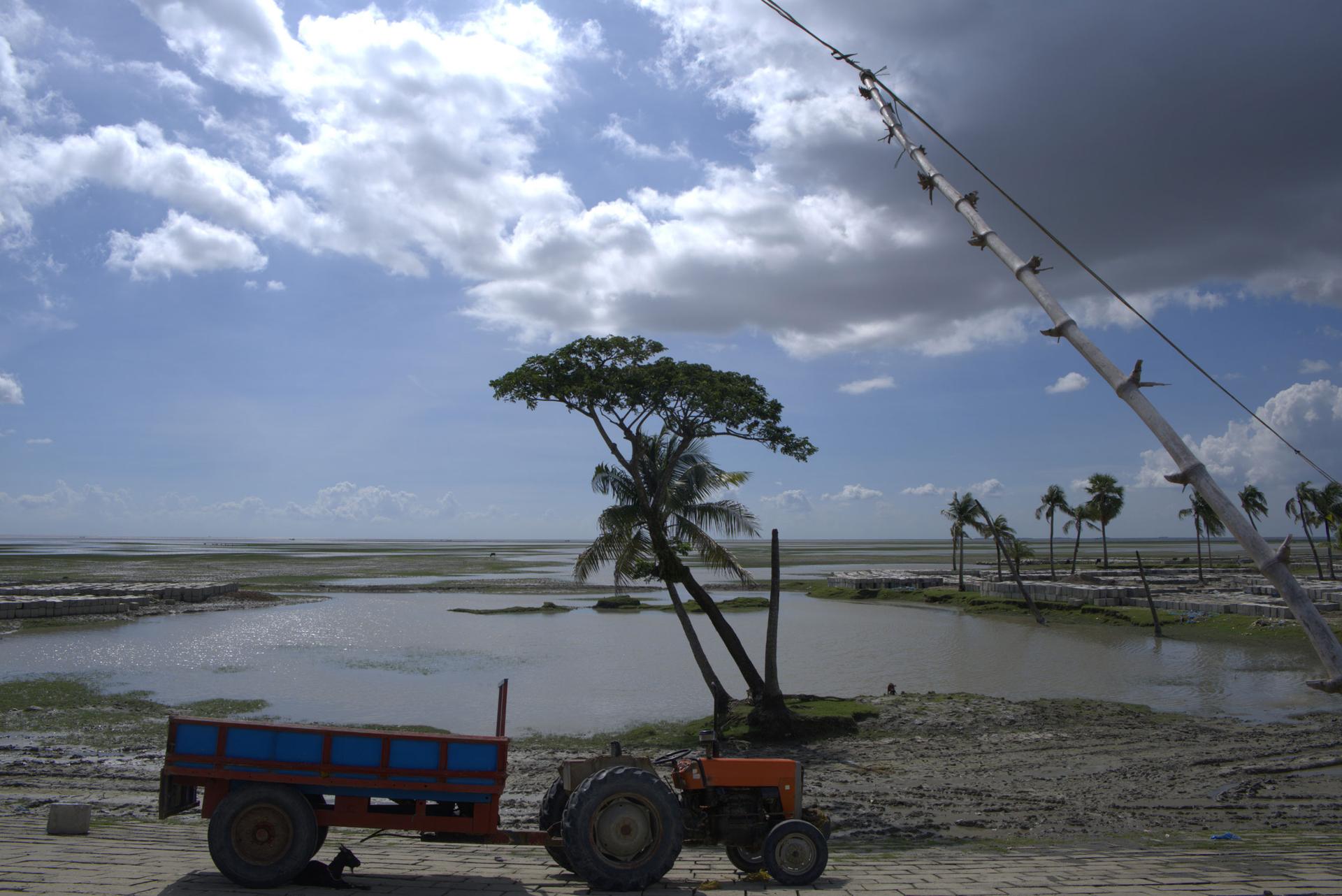
Islam was born with a condition that affects how he walks, but he is able to go up the flight of steps that lead to the second floor of a municipal building that doubles as a cyclone shelter.
Islam said there are only a couple places like this on the island.
“Some people with a disability never leave their homes … But, sometimes, there’s no other choice than to bring them to a cyclone shelter.”
“Some people with a disability never leave their homes,” he said. “But, sometimes, there’s no other choice than to bring them to a cyclone shelter.”
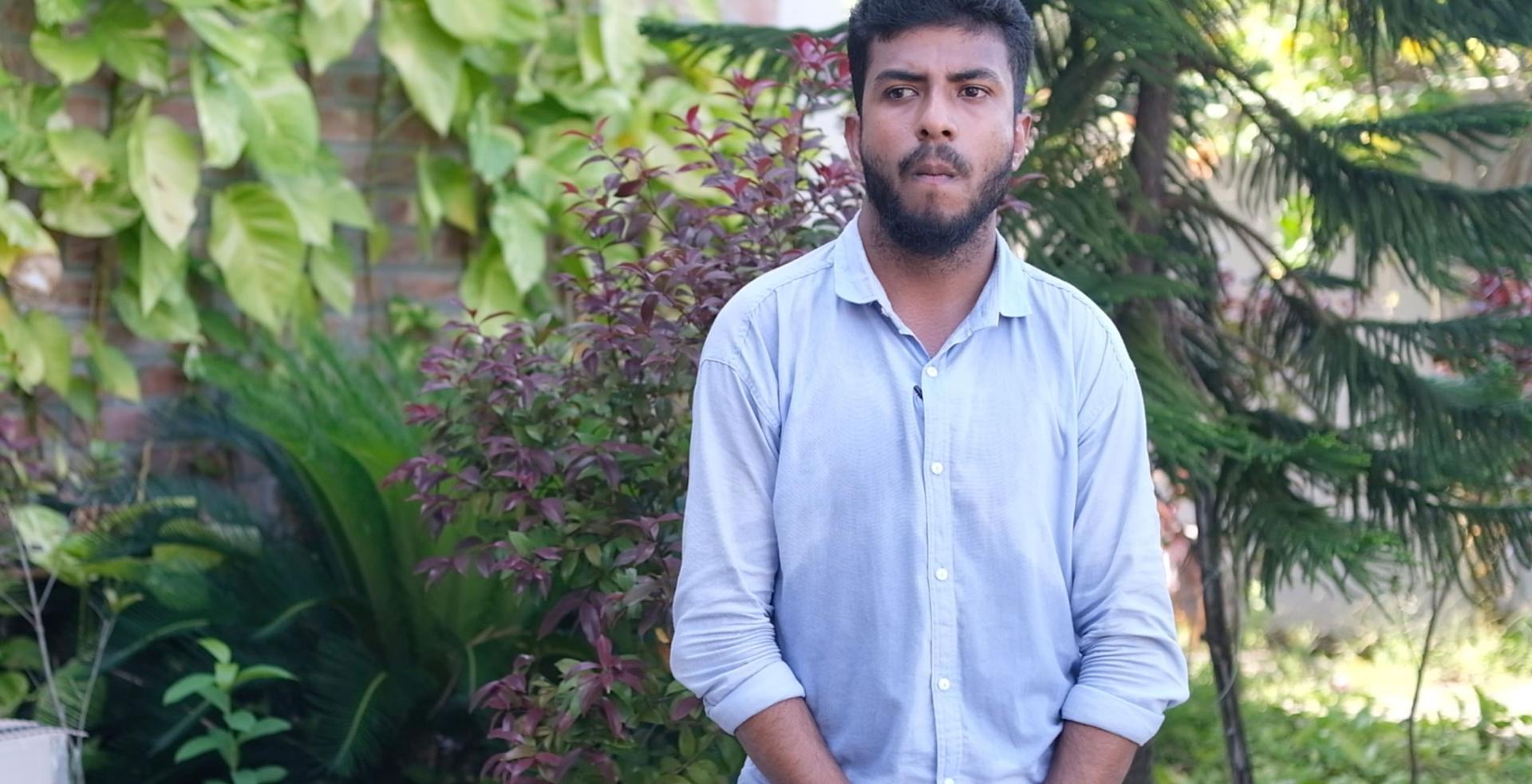
Three years ago, Islam started an organization that dispatches volunteers to the homes of elderly residents, people with disabilities or anyone else who needs help when a storm strikes. They’re brought to safer places via motorbike taxis.
“Weather conditions change so rapidly, every half an hour or hour, ” he said. “If I’m outside my home and a storm happens, if there’s not a shelter nearby, I wouldn’t know where to go.”
And for some, that’s a matter of life or death.
Editor’s note: Jason Strother’s reporting was supported by the National Geographic Society. Kazi Riasat Alve and Sharif Ferdous Arko contributed to this story.
